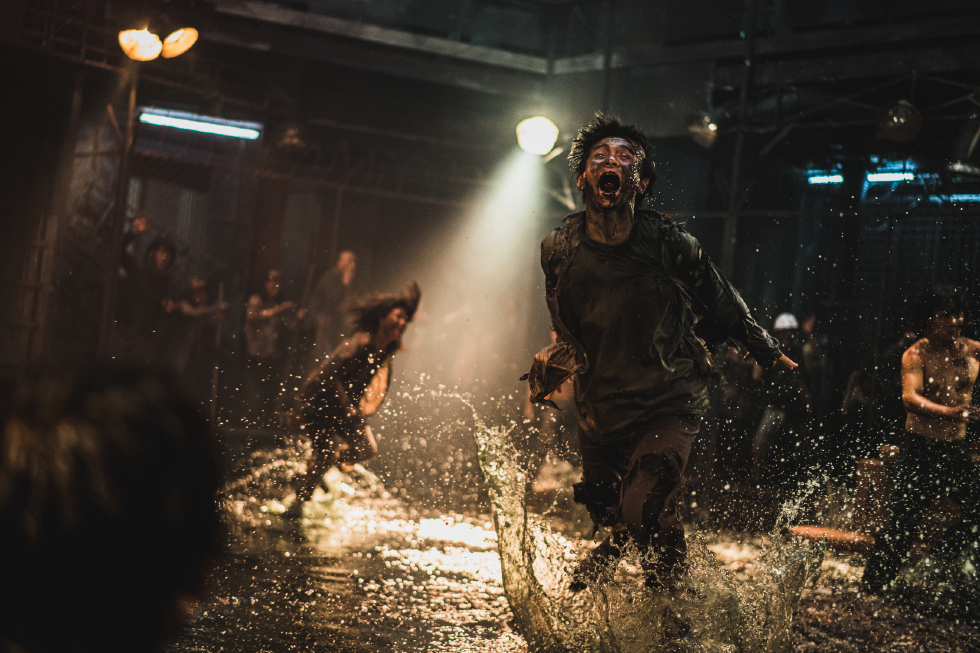Peninsula – Final Part in South Korean Zombie Trilogy Lacks Bite

In the midst of a pandemic, a new addition to the zombie canon can’t help but feel timely. But, asks Mike Pinnington, does TRAIN TO BUSAN PRESENTS: PENINSULA stand out from the horde?
In 2016, South Korean zombie flick Train to Busan made a much deserved splash. With its combination of frenetic action and social commentary, director Yeon Sang-ho breathed new life into a genre that – on the big screen at least – had long since peaked. The success (both commercial and critical) of what was dubbed ‘South Korea’s first zombie blockbuster’ was such that it quickly spawned animated prequel, 2017’s Seoul Station, and has since arguably paved the way for unlikely and otherwise unrelated undead period drama, Kingdom (2019). Uniting each of these is their relative innovation in the face of decades of (largely Western) zombie lore to contend with. They’re also fantastically entertaining while, as with George Romero’s films before them, having something much deeper to say about societal iniquity.
All of which brings us to Train to Busan Presents: Peninsula, the culmination of Yeon Sang-ho’s trilogy of films mapping the outbreak, its inception and now, its aftermath. Set in the same universe as Seoul Station and Train to Busan, Peninsula takes place four years hence, in a period which has seen Korea’s fall and subsequent decimation at the hands – and teeth – of the rapidly spreading infected. The action follows Jung-seok (played by Gang Dong-won), a soldier who escaped the zombie-ridden wasteland once, only to relive its horrors when he’s more or less press-ganged into accepting a mission on the now quarantined Korean peninsula of the title. His task: get in and retrieve a truck-full of US Dollars discarded in the mayhem (yes, depressingly, money still talks in whatever is left of society). Predictably, things don’t go to plan, as he and his rag-tag team (including his lost and, frankly, whiny brother-in-law) are almost immediately overrun by a zombie horde. They also encounter survivors, who bring with them their own set of challenges.
The action takes place in a now familiar – thanks to the ubiquity and longevity of shows like The Walking Dead – post-apocalyptic expanse of burnt out cars, run-down architectural hulks and other assorted detritus. There, the massed ranks of zombies (for the uninitiated, these are the speedy variety), dictate that human movement through diseased wastelands and rotten-looking encampments favours stealth. Of this third act in the series, its director has said that he “wanted to tell the story of modern people who live[d] in a rational society, and how they react to a new world enveloped in barbarism and contrasted humanism”. There is plenty of the former and little of the latter to speak of, leading us to the dual questions of who you need to fear most and who are the real undead – the survivors or the zombies.
Although a noble (if done to death) line of enquiry, for all the promise suggested by Yeon Sang-ho’s previous outings in this world – and the sheer speed of assailants – Peninsula is disappointingly plodding. Perhaps it is in the somewhat pat device of the suicide mission, or the 2D cast of characters and their conflicts – personal, emotional, and otherwise. It’s heavily reliant on visual effects and, despite the roving living dead, strangely lacking in real menace. As such, there is a sense of going through the motions, and of getting over the finishing line of an energy and, dare I suggest, ideas-sapping set of films. It doesn’t help that earlier this year saw the release of another zombie film hailing from South Korea, #Alive, which ticks a number of boxes skipped or overlooked here. It’s a real shame and, as a fan of the two previous instalments, pains me to say it, but Peninsula is one zombie movie that lacks serious bite.
Mike Pinnington
TRAIN TO BUSAN PRESENTS: PENINSULA is in cinemas from 6 November





